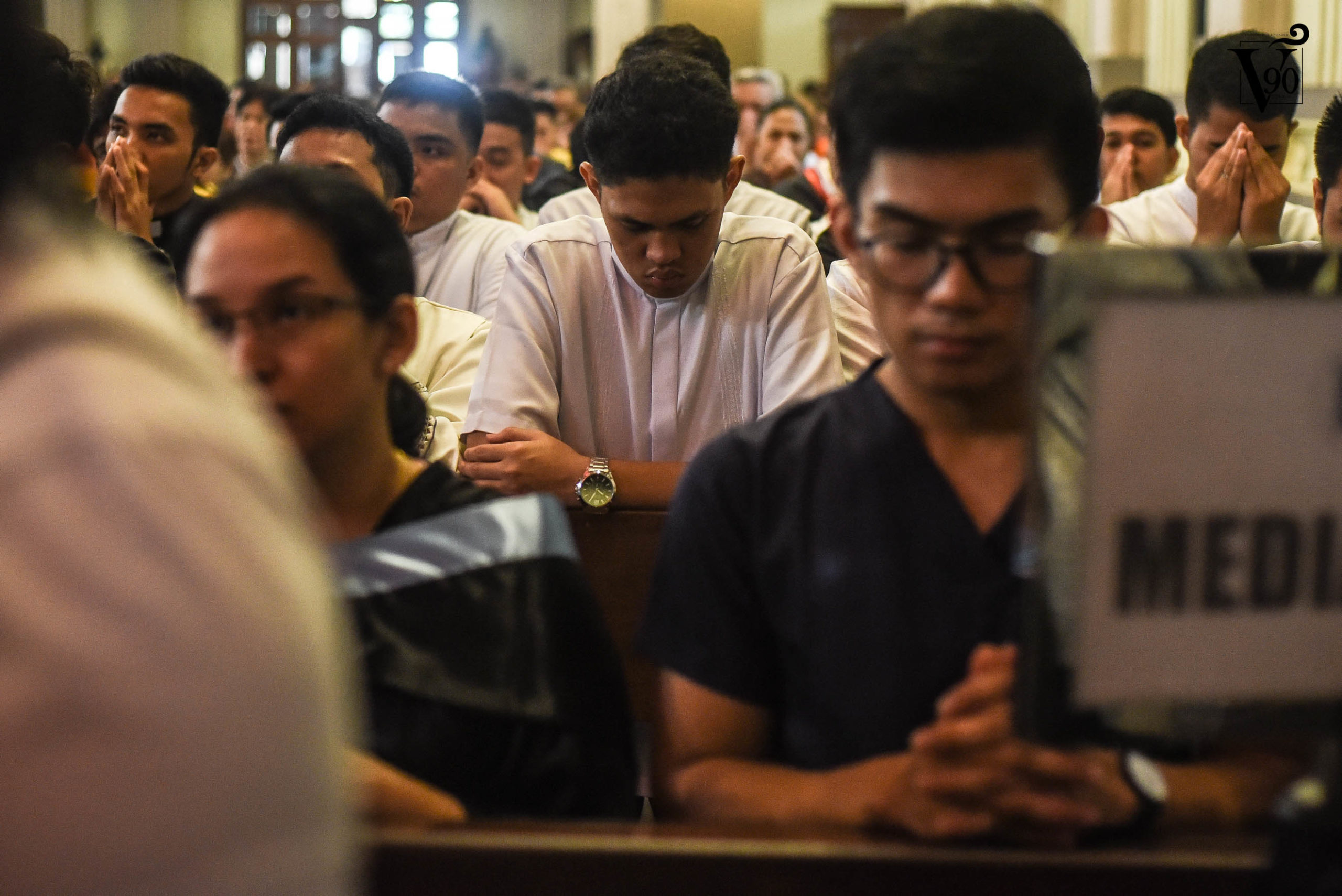
29 July 2014, 8:36 p.m. – THE COUNCIL of Teachers and Staff of Colleges and Universities of the Philippines (COTESCUP) is calling for the suspension of the implementation of the K to 12 program in 2016, amid growing concerns over its labor implications.
In a general assembly at the University of the Philippines-Diliman on Tuesday, teaching and non-teaching staff said the government should come up with a concrete solution to the looming retrenchment of an estimated 86,000 employees.
COTESCUP lead convenor and UST Faculty Union External Vice President Rene Luis Tadle said the government was working on plans that might not materialize during the full implementation of K to 12 in 2016.
“It seems as if these proposals, particularly the [Tertiary Education Sector] transition fund, are just a collection of empty promises,” he said. “If it is necessary, we are willing to go to court to protect the rights and interest of our teachers.”
Sen. Antonio Trillanes IV, Senate Committee on Civil Service and Government Reorganization chairman, also expressed opposition to the full implementation of K to 12, and promised to act on the labor concerns.
“Hindi handa ang Pilipinas [para] sa K to 12 program. I will make sure that this will be suspended,” he said.
Section 14 of The Enhanced Basic Education Act of 2013, known as the K to 12 law, states that the program can be suspended if it fails to satisfy the mandatory review of the Joint Congressional Oversight Committee at the end of school year 2014-2015.
Trillanes, who was against the program even before it became a law in 2013, also urged the council to show to the President and the Supreme Court the huge clamor to suspend K to 12.
However, House Committee on Higher and Technical Education Chairman and Pasig Rep. Roman Romulo asked the employees to be patient and continue working with the committee to find solutions to the massive job displacements in 2016.
“I am asking our teaching and non-teaching staff to stretch their patience and wait until September for the proposals of our national agencies,” he said. “We should find solutions for displacements or better alternatives.”
Present in the assembly were teaching and non-teaching employees from Far Eastern University, University of the East, Centro Escolar University, Mapua Institute of Technology, Holy Angel University-Pampanga, University of Bohol, University of San Carlos, Siliman University, Colegio de San Juan de Letran, Miriam College and St. Scholastica’s College-Manila. Arianne F. Merez
















¡Buen Dia a todos!
¿Que tal?
i was just curious if somebody had conducted a thorough investigation with regards to this “not ready” in the entire country, particularly in the NON-Tagalog Regions and NON-Tagalog Independent Cities.
as far as i am concern, the Suspension of the K-12 Program may also affect the Multilingual Mother Tongue Based Education in our Current education system which already became the hope for all NON-Tagalog Filipinos to learn their ‘own native ‘Language’ and to be educated in their own language as young as as kinder.
As a NON-Tagalog Filipino, i will consider this as one of the movement being done by the Purista-Tagalista, Ultra-Nacionalista, the KWF, the Tanggal Wika/Tanggol Wika and all those Organization in our Country that supported the cause of “Language, Linguistic and Ethnolinguistic Cleansing/Genocide through the fascist hegemonic, Imperialist, Colonialist and Supremacist Imposition of the National Language which is the KWF-Based Tagalog (imperial dialect) guised and disguised as filipino ‘dialect’.
surely, this is clearly an act “Language and Ethnolinguistic Oppression” to all of us NON-tagalog Filipinos.
In fact, we are establishing an alliance with the organizer of this event, supporting for the suspension of the K12 program. Our points:
1. Parents have never been given proper information and consultation during public hearings initiated by the government and the k12 proponents.
2. Parents will be greatly affected by the k12 program, knowing its financial impact for the added years to complete basic education.
3. Parents are the primary educators, schools supplement children’s education and this “supplementation” is made possible only upon the parents’ decision by sending their children to the schools. (K12 will be successful only if parents fill schools with their children.)
4. The government is unprepared for the program. Schools are unprepared. Teachers are unprepared, etc.
5. The government seems to rush the program, started implementation as early as 2012 while the law was only approved 2013. (in time for 2016? What is the rush for? if k12 is for quality education, why rush quality education?)
6. Implementation was retroactive, it started immediately with grade 7 without undergoing all the other lower stages of k12.
Our proposal:
1. Postpone/suspend k12!, or
2. Begin implementation with kinder, follow the stages as stated in Section 4 of RA 10533.
Our proposal would allow more time and preparation for DepEd, including parents.
Rey Vargas
Founding Chairman
Parents Advocacy for Children’s Education (PACE)
Hindi sapat ang ating facilities para sa programang ito. Siguro unti-unti nating gawin, magumpisa tayo sa kinder at bigyan ng scholarship sa TESDA ang mga gusto magpatuloy mag-aral pagkatapos ng high school.